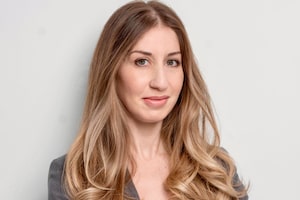At the very beginning of the COVID-19 pandemic, when toilet paper was trading like white gold and no one quite knew what the next few weeks or months would hold, Galen Weston Jr., then CEO of Loblaw L-T, appeared in the inboxes of Canadians and tried to assure them that everything would be okay. “Do not worry,” wrote Uncle Galen. “We are not running out of food or essential supplies.”
He announced that Loblaw stores would have dedicated shopping hours for seniors and those living with disabilities so they wouldn’t have to fend with crowds. He said that fees for grocery delivery would be lowered, and that they would be eliminated for PC Express pickup orders. And he promised that his stores wouldn’t change their pricing in response to the unprecedented demand for basic necessities. “We will not raise a single price on any item to take advantage of COVID-19,” he promised.
It was a masterful piece of branding: empathetic, assertive and oddly personal. Somehow, the grocery empire billionaire, whose button-down/sweater combos look more expensive than most people’s rent, managed to convey an understanding of regular Canadians’ anxieties, and he offered them reassurance that seemed to be genuine.
Since then, the visage of Uncle Galen has morphed into Rich Uncle Pennybags, whose grocery stores are now the subject of a boycott for the month of May over its perceived exploitation of the rising cost of food. Mr. Weston is no longer Loblaw’s chief executive, but he remains chair of the company’s board and CEO of its parent company, and as such, the target of much of the public’s ire. The Reddit page from where the boycott originated sarcastically thanks Mr. Weston “for continually raising grocery prices so he can get a big fat bonus cheque every year.”
Loblaw should be seen as a great Canadian success story. It’s a family business that opened its first self-serve grocery store in Toronto in 1919, and since then has grown into a bona fide behemoth, with 220,000 people across the country on its payroll. Loblaw operates both premium and discount grocery brands, a clothing brand, a financial brand, Shoppers Drug Mart stores, and has partnerships with Esso and Mobil gas stations. It is an omnipresent feature of Canadians’ everyday lives; Loblaw is there when you get your gas, your groceries and your prescriptions.
Perhaps that’s part of the reason why it has become such a target for the public’s frustrations over the rising cost of groceries. (That and the fact that Mr. Weston featured himself in its advertising for so many years. Could anyone pick David Sobey, of the Sobeys grocery empire, out of a crowd before his death in 2023?) Loblaw has grown – and has been permitted to grow – so big that Mr. Weston is now the face of food inflation in this country. The company just recorded $13.58-billion in first-quarter revenue, with a quarterly profit of $459-million, marking a 9.8-per-cent increase. On the first day of the May boycott, it also raised quarterly dividends by 15 per cent, which may be seen as an extra twist of the knife to those more concerned with affording bread than portfolio performance.
But it would be too simple to say Loblaw is merely a victim of its own success. It was part of a scheme to fix the price of bread for over 14 years. It cancelled its $2-bonus “hero pay” for front-line grocery workers after the first wave of the pandemic, even though the second wave of the virus was much larger. It has resisted signing on to a grocery code of conduct. And it recently changed its discount on nearly expired food from 50 per cent to 30 per cent – only to reverse course in response to public backlash.
Loblaw has a fiduciary responsibility to its shareholders to try to maximize profits, so from that perspective, many of these moves (the legal ones) are defensible and expected. But to the public, they are nevertheless irksome, particularly when Loblaw’s branding is about looking out for struggling families trying to keep up with rising food prices. If Loblaw’s message was merely about convenience and quality, it might not feel like such a betrayal when Galen Weston earns enough to buy a new yacht for 2024. When executives profess to understand, in their cashmere, what it’s like to put something back on the shelf after doing some mental math, Canadians don’t just reject it – they boycott.
More competition in the grocery industry would help keep prices down across the board, but the conditions that have allowed Loblaw to grow to what it has now become – the acquisition of smaller brands, the cultivation of relationships with vendors, restrictive property controls and so on – serve as a barrier for the emergence of new grocers. So for now, Canadians are left shopping at one of five big chains (or else, smaller independents) while paying through the nose and grumbling as Canada’s grocery dynasties let them eat overpriced, shrunken pieces of cake.
 Robyn Urback
Robyn Urback